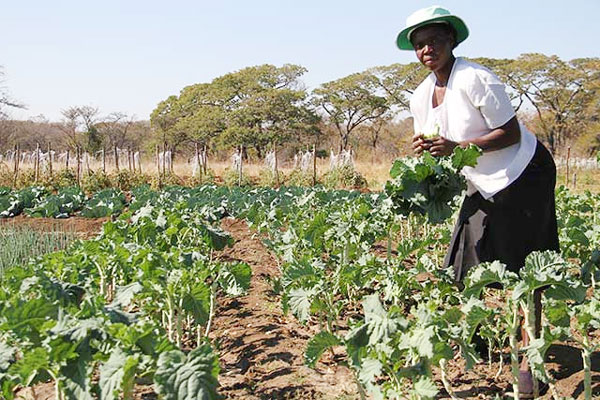
health talk:with Dr Johannes Marisa
Numerous diseases have been attributed to deficiencies of proteins, vitamins, fats and some micronutrients. Diseases like kwashiorkor and marasmus have been attributed to protein deficiency, while conditions like scurvy have been attributed to Vitamin C or Ascorbic acid deficiency. Beriberi has been traced to Thiamine deficiency or Vitamin B1. This means that for us to remain healthy, we have to observe a balanced diet that has enough of vitamins, proteins and carbohydrates. While proteins are required for body-building, carbohydrates are there for energy provision and vitamins generally protect us from a lot of diseases. In short, all the food components play significant roles which of course might be different, but all to the benefit of our bodies.
Benefits of proteins
Proteins come from such foods as meat, eggs, beans, peas, milk. Proteins are needed in our bodies for growth and maintenance of the tissues. Enzymes that catalyse biochemical reactions in our cells are proteins. It is thus prudent to have proteins in our diet in order for such things as enzymes and hormones to be made. It should be noted that proteins play an important role in regulating the concentrations of acids and bases in the blood. Proteins also regulate body processes to maintain fluid balance. Albumin and globulin are proteins in your blood that help maintain your body’s fluid balance by attracting and retaining water. Mind you, proteins also form immunoglobulins or antibodies to fight infection. Without antibodies, you remain with nothing to defend you.
Benefits of Vitamins (ie, vegetables)
Vitamins come from such things as vegetables which include covo, rape, muboora, lettuce, cabbages and carrots. Although all veggies are good for you, there are some particular veggies that are power-packed with nutrients. Examples include beets and beet greens, microgreens, spinach, bell pepper, broccoli, asparagus, peas, beans and collard greens.
Eating these things carry a lot of benefits, not forgetting that a balanced diet with proteins and fats is a necessity. The following should be known about vegetables:
lMost vegetables are naturally low in fat and calories. None have cholesterol.
- Chamisa under fire over US$120K donation
- Mavhunga puts DeMbare into Chibuku quarterfinals
- Pension funds bet on Cabora Bassa oilfields
- Councils defy govt fire tender directive
Keep Reading
lVegetables are important sources of many nutrients including potassium, fibre, folic acid, Vitamin A, Vitamin C.
lDietary fibre helps reduce cholesterol in the body, hence reducing the risk for heart disease. Close to 2,6 million people die every year from cholesterol-related illnesses. Fibre is also important for bowel motility, hence constipation is reduced. Fibre-rich vegetables include broccoli, carrots, sweetcorn, cabbages, peas, beans, pulses and potatoes with skin. Fruits such as berries, pears, melons and oranges are rich sources.
lVitamin A keeps eyes and skin healthy and helps to protect against infections. Sources of Vitamin A include orange and yellow vegetables like carrots, cod liver oil, fortified skim milk, broccoli, spinach and most dark green, leafy vegetables.
lVitamin C, which comes from such veggies as tomatoes and tomato juices, cabbages, spinach, fruits like oranges, lemons, apples, helps heal cuts and wounds and keeps teeth and gums healthy. Iron absorption is also aided by Vitamin C so iron deficiency Anaemia can avoided.
lFolate helps the body to form red blood cells. Folate sources include beans, peas, lentils, leafy green vegetables like spinach, broccoli, lettuce, fruits like lemons, bananas and melons. Women of child-bearing age who desire to fall pregnant should take adequate folate from food supplements. There is reduced risk of neural tube defects, spina bifida and anencephaly. Observe the stated veggies and fruits for folate supplementation.
The following are the health benefits of vegetables:
lEating a diet rich in vegetables and fruits as part of an overall healthy diet may reduce cholesterol. This reduces heart attacks, strokes or heart diseases.
lTaking in high vegetables increases the intake of fibre and potassium. High fibre is needed for bowel motility and lack of it may precipitate constipation which can result in bowel distension and irritability.
lPotassium that is found in vegetables can help maintain a healthy blood pressure. Risk of stroke and other complications of hypertension is reduced.
lVegetables can lower risk of type 2 diabetes — Vitamin K is a nutrient that is found in leafy vegetables like kale, turnip greens, Swiss chard and it has been shown to lower the risk of type 2 diabetes. Vitamin K also improves insulin sensitivity, making it easier for the body to keep blood sugar under check.
lVegetables help your skin — Vegetables contain phytonutrients, which restore the skin and make it look younger and healthier. Vitamin C in veggies also facilitates collagen formation, which reduces the appearance of wrinkles on areas like the face and abdomen and also speeds up the healing of wounds, burns and other skin problems.
Observe a balanced diet to avoid deficiency diseases. Proteins, carbohydrates, fats and vitamins should be integrated for the betterment of your health. Do not forget that with more of vegetables, you are better off. Try it, increase your vegetable intake by 50% starting today and see the health benefits. Your health is our concern!
Till we meet next week!
lDr Johannes Marisa is a medical practitioner, educationist and public health expert who can be accessed at [email protected].











